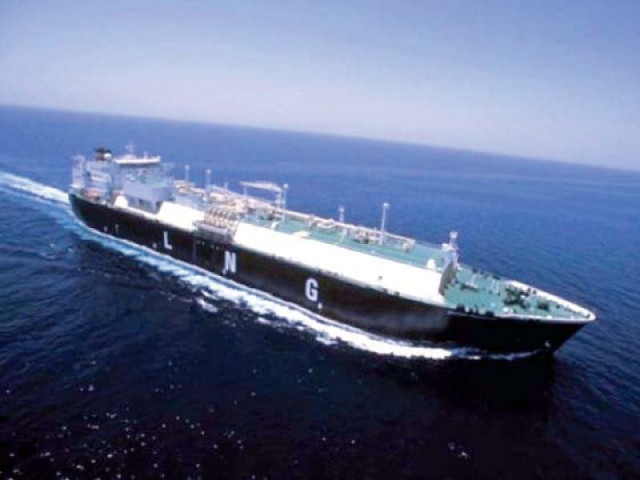LNG consumers likely to bear extra $40m cost
Idle capacity at second LNG terminal estimated at 53% for 2019

The shift in policy would require the handling of regulatory, contractual as well as operational issues, PLTL authorities suggested. PHOTO: FILE
Already, the consumers have paid $45 million for the unutilised capacity at the second terminal in 2018. Private-sector stakeholders were interested in utilising the idle capacity, which would have resulted in a lower tariff cost, but bureaucratic snags prevented them due to a lack of regulatory framework.
According to documents available with The Express Tribune, the second LNG terminal is booked for 47% utilisation of its capacity in 2019, which was lower than last year’s level.
The cost of full re-gasification capacity at two LNG terminals at Port Qasim is paid through a guaranteed fixed charge and any idle capacity leads to a higher re-gasification tariff.
Law Division suggests contract revision with mutual consent
In 2018, the first operating year for the second LNG terminal, the average tariff was worked out at $0.7841 ($0.4177 at full capacity) per million British thermal units (mmbtu) due to 47% idle capacity, which forced consumers to pay an extra around $45 million (Rs6.2 billion).
Based on the 2019 annual delivery plan agreed among Sui Northern Gas Pipelines, Pakistan State Oil, Pakistan LNG Limited, Pakistan LNG Terminals Limited (PLTL), Engro Elengy Terminal Pakistan Limited and Pakistan GasPort Limited, the idle capacity at the second LNG terminal will be around 53%, which was 47% in 2018.
The re-gasification tariff will be $0.722 per mmbtu against $0.7841 per unit in 2018, which was 72% higher than the contractual levelised tariff of $0.4177 per mmbtu. The additional cost to be borne by gas consumers will be around $40 million, which was $45 million in 2018.
Minister puts rumours to rest, says govt not cancelling any contract
In a plan on how to utilise the idle terminal capacity submitted to the Director General LNG of the Petroleum Division, the PLTL authorities said while LNG had strengthened its position globally as the energy of choice, Pakistan’s installed terminal capacity and the supply chain, which it served, were still in their infancy.
They saw the potential for improvement through operational management, effective corporate restructuring and by liberalising the sector. They emphasised that work at first and second LNG re-gasification terminals could be optimised through two options. At present, the terminals are being managed independently of each other.
While capacity charges were guaranteed at both the terminals, the utilisation charge was variable and the terminal with the cheaper utilisation charge should be given priority, the PLTL’s plan said. Synergies existed in efficient load management of each terminal considering the fixed and variable cost structure, it said.
To minimise the idle capacity at both the terminals, according to PLTL authorities, the private-sector parties may be allowed to provide re-gasification services in addition to their existing arrangements.
The shift in policy would require the handling of regulatory, contractual as well as operational issues, they suggested, adding that private-sector involvement would bring down the capacity charge for one cargo by $1.14 million, for five cargoes by $5.7 million and for 10 cargoes by $11.4 million.
“A substantial part of the government’s LNG import bill and guarantees for LC (letter of credit) for LNG cargoes will shift to the private sector,” they said, adding that the Oil and Gas Regulatory Authority (Ogra) had already allowed third-party access on the basis of a mutual agreement and it further required preparation for a multi-user terminal agreement.
Published in The Express Tribune, February 13th, 2019.
Like Business on Facebook, follow @TribuneBiz on Twitter to stay informed and join in the conversation.



















COMMENTS
Comments are moderated and generally will be posted if they are on-topic and not abusive.
For more information, please see our Comments FAQ